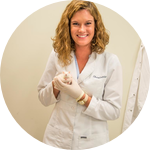About This Project
Life frequently tempts us with alluring options that turn out to be bad decisions. If risky decision-making becomes the norm, it can rapidly lead to an unhealthy lifestyle and sometimes even addiction. We are beginning to understand what happens in the brain when we make risky decisions. But what changes in the brain when we refrain? By understanding how the brain prevents risky-decision making, and possibly addiction, we can prevent those decisions from happening in the first place.
Ask the Scientists
Join The DiscussionWhat is the context of this research?
Our focus is on the interplay between subcortical and cortical regions of the brain. Subcortical regions are responsible for generating many of our primitive urges, while cortical regions act to modulate and restrict these urges to appropriate times. Using an animal model, we can assess these regions’ involvement when the animal is faced with good and bad options. Their choices can be swayed experimentally by activating relevant brain areas with two techniques: laser light stimulation (optogenetics) and genetically modified designer receptors exclusively activated by designer drugs (DREADDs). We have previously shown that subcortical stimulation can establish addiction-like behavior in rats. Thus, our work hopes to assess whether cortical stimulation can reverse or suppress this behavior.
What is the significance of this project?
Addiction is a prevalent problem in today’s society. It ranges from drug abuse to pathological gambling to diet-induced obesity. Millions of dollars are spent every year on the so-called “war on drugs,” and drug addiction and regulation has recently been a hot topic of debate for U.S. presidential candidates. In general, while rehabilitation and therapy can prove effective in some cases, the more we learn about the neurological basis of addiction, the better we can treat and prevent it.
What are the goals of the project?
Our goal is to assess how certain subcortical and cortical brain areas function in addiction. Using rats, we will use laser light and designer receptors to activate specific brain cells with precise timing. This allows us to generate compulsive risky decision-making by activating subcortical urges and examine how they can be tempered through cortical inhibition. Moreover, if we can use lasers to increase cortical control over these subcortical urges, it’s possible that we can override the system so that good choices outweigh the bad.
Please note: All protocol procedures were approved by the Wesleyan University Institutional Animal Care and Use Committee (IACUC).
Budget
Stage 1: We are asking you to collaborate with us by helping us purchase the necessary cutting-edge technical equipment and methodologies in order to best aid in understanding the risky decision-making process. More specifically, funds will be applied for purchasing a blue wavelength DPSS laser system (473nm), optogenetic and DREADDs viruses, and supplies for fabricating fiberoptic cables and implants. Additionally, these funds will be used for purchasing, breeding, and genotyping TH-Cre transgenic rats. We selected these animals because current transgenic technology provides a great model for targeting dopaminergic neurons and their projections, a technology that only recently became available in rats.
Stage 2: Funds in excess of our stage 1 goals will be applied toward purchasing an additional DPSS laser system, as this will increase the speed of data collection and feasibility.
Our lab currently has the necessary space and infrastructure to complete the proposed studies.
Endorsed by
Meet the Team
Affiliates
Affiliates
Team Bio
The Robinson Lab consists of a highly skilled, highly motivated team of graduate and undergraduate students and lab manager. They have several years of experience performing stereotaxic brain surgery, developing computer programs for behavioral testing, conducting optogenetic research, and carrying out in depth data analysis.
Mike Robinson, PhD
I am an Assistant Professor of Psychology and Neuroscience & Behavior at Wesleyan University. My research focuses on brain mechanisms of motivation and reward, especially related to neural generators of reward ‘wanting’ (incentive salience) and ‘liking’ (hedonic impact). A major focus in my lab is how the brain can produce excessive ‘wanting’ for a particular reward, and how this can result in compulsive risky decision-making. My approach includes the use of optogenetics and DREADDs, combined with behavioral approaches to uncover the mechanisms underlying excessive attribution of incentive value for drug addiction, gambling and diet-induced obesity.
Rebecca Tom
I am a current graduate student at Wesleyan University, completing a Master’s Thesis through the BA/MA program while double majoring in Neuroscience & Behavior and Biology. As a member of the Robinson Lab, I have been using optogenetics for over a year to examine the role of subcortical structures in biasing choice towards risky outcomes associated with adverse consequences. I recently had the pleasure to present our optogenetic research at The Society for Neuroscience Conference in Chicago this past October. In the future, I plan to attend medical school to pursue a career in pediatric neurology.
Charlotte Freeland
As the current Robinson Lab Manager and research assistant, I graduated from the University of Connecticut with a B.S. in Physiology and Neurobiology and have over three years of neuroscience research experience. I am very excited to be part of this project and I hope to continue my graduate education here at Wesleyan University.
Additional Information
Find out more about us and follow us here:
http://robinsonlab.research.wesleyan.edu/dr-mike-jf-robinson/
Project Backers
- 39Backers
- 104%Funded
- $4,166Total Donations
- $106.82Average Donation





